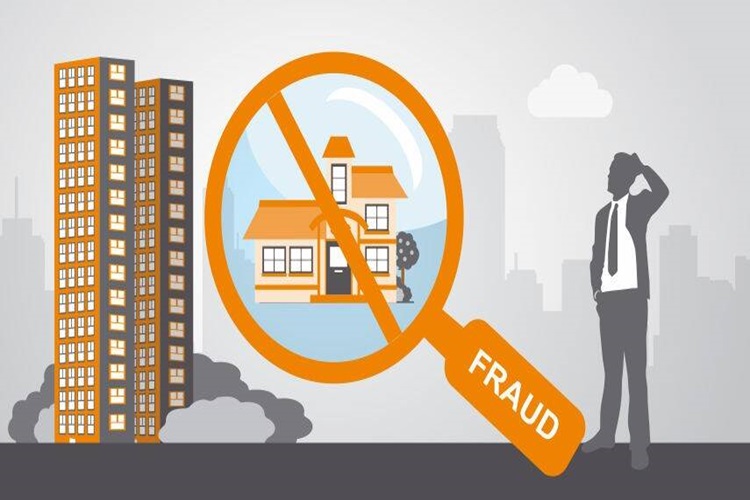
Property document forgery is one of the most common and dangerous forms of fraud in India’s real estate sector. Fraudsters manipulate or counterfeit documents to falsely claim ownership of property, leaving buyers vulnerable to legal disputes and financial losses. Safeguarding your real estate transactions requires a thorough understanding of how document forgery occurs and the steps you can take to protect yourself.
1. How Property Document Forgery Happens
Property document forgery can take many forms. Some common methods include:
- Fake Title Deeds: Fraudsters create fake title deeds to show that they are the legitimate owners of a property. These counterfeit documents are then used to sell the property to unsuspecting buyers. The rightful owner may later contest the sale, leading to legal complications for the buyer.
- Forged Power of Attorney: In many cases, fraudsters use forged power of attorney (PoA) documents to transfer ownership of property without the knowledge or consent of the rightful owner. This is especially common when properties are left unmonitored, or the owner resides abroad.
- Tampering with Original Documents: Some fraudsters manage to gain access to original property documents and tamper with details like ownership, boundary descriptions, or transaction history to claim the property. This can occur if documents are not stored securely or are given to untrustworthy intermediaries.
- Duplicate Sales: In this type of scam, fraudsters create fake documents to sell the same property to multiple buyers. Each buyer believes they are the legal owner, but only one can be the true titleholder.
2. The Consequences of Document Forgery
Falling victim to property document forgery can have severe financial and legal consequences. Buyers may lose the money they invested in purchasing the property, face lengthy legal battles, and in some cases, lose possession of the property altogether. Even when fraud is uncovered, recovering funds or reclaiming the property can be a long and complex process, often involving legal action against multiple parties.
3. Steps to Safeguard Your Real Estate Transactions
a) Verify Title Deeds Thoroughly
Before purchasing any property, it is essential to verify the authenticity of the title deed. Visit the local sub-registrar’s office to check the ownership history and ensure there are no discrepancies. A genuine title deed should match the information in official land records. It’s also important to confirm that the seller has clear legal rights to sell the property.
b) Obtain an Encumbrance Certificate
An Encumbrance Certificate (EC) is a vital document that reflects any legal liabilities associated with the property. It provides a detailed history of transactions related to the property, helping you confirm that there are no outstanding mortgages, claims, or disputes. This certificate is especially useful in protecting against forged documents that claim clear ownership.
c) Cross-Check All Documents with Local Authorities
Many fraudulent transactions can be avoided by cross-checking all relevant documents with the local authorities. Visit the local land records office or municipality to verify that the property has the proper approvals, and ensure that the details in the documents match official records. This step helps to confirm the legitimacy of the sale and avoid fake or tampered documents.
d) Hire a Real Estate Lawyer
Consulting a qualified real estate lawyer is one of the most effective ways to protect yourself from document forgery. A lawyer can carefully review all documents, identify any red flags, and ensure that the transaction complies with legal requirements. Additionally, they can assist in verifying the authenticity of the power of attorney and other critical documents.
e) Monitor Your Property
If you own a property that is unoccupied or located in a distant area, regularly monitor its status. Fraudsters often target properties that are left unattended for long periods, as the rightful owner may not be aware of fraudulent activity. Keep a close eye on the property to ensure no unauthorized changes or sales occur.
f) Use Registered Sale Agreements
When purchasing a property, always execute a registered sale agreement. This creates a legal record of the transaction, making it harder for fraudsters to claim ownership using forged documents. Registered agreements are also easier to enforce in court if disputes arise.
g) Digitize and Secure Property Documents
Property document forgery can occur when physical documents are stolen or tampered with. By digitizing your documents and keeping them in a secure location, you reduce the risk of unauthorized access. Online government portals and digital property records are becoming more common, allowing property owners to monitor and safeguard their assets.
4. Government Initiatives Against Document Forgery
The Indian government has introduced various measures to prevent property document forgery and protect buyers:
- Digitization of Land Records: Initiatives like the Digital India Land Records Modernization Programme (DILRMP) aim to digitize land records, making it easier to verify property ownership and reducing the chances of forgery.
- Aadhaar-based Verification: Many states have introduced Aadhaar-based verification for property transactions to ensure the identity of buyers and sellers, reducing the risk of fraud.
- RERA (Real Estate Regulatory Authority): RERA requires developers to register their projects and provide clear documentation, increasing transparency and reducing the chances of buyers falling victim to forgery or false claims.
Conclusion
Property document forgery poses a serious risk in India’s real estate market, but buyers and investors can protect themselves by being vigilant and taking the necessary precautions. Verifying documents, consulting legal professionals, and using secure methods to store property papers are essential steps in safeguarding your transactions. As government efforts to digitize land records continue, it is becoming easier for buyers to avoid falling victim to forgery and fraud.
